Crime, Justice & Truth
LIBERATION THROUGH KNOWLEDGE
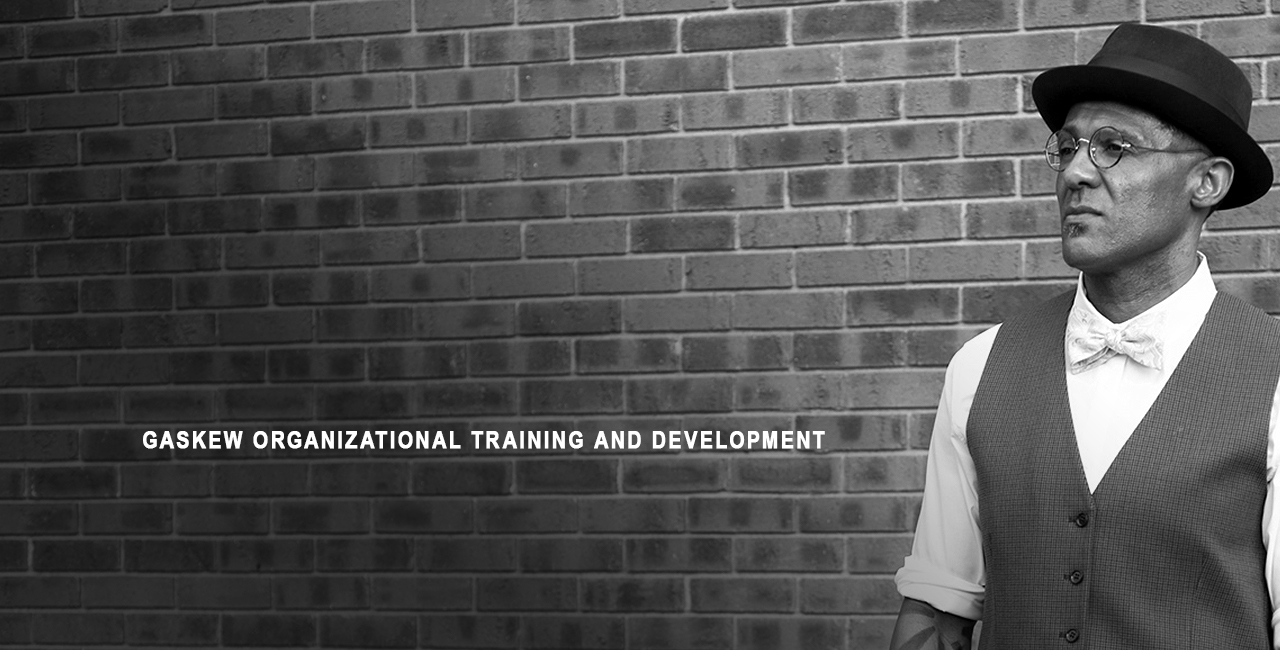
“For history, as nearly no one seems to know, is not merely something to be read. And it does not refer merely, or even principally, to the past. On the contrary, the great force of history comes from the fact that we carry it within us, are unconsciously controlled by it in many ways, and history is literally present in all that we do. It could scarcely be otherwise, since it is to history that we owe our frames of reference, our identities, and our aspirations”
— James Baldwin
SUMMARY
Tony Gaskew, Ph.D. is a critical race theorist who has spent the last three decades examining the Black radical traditions response to systemic and direct anti-Black police violence in America. He is currently a full Professor of Criminal Justice and Africana Studies, Director of the Criminal Justice Program, and Founding Director of the Prison Education Program at the University of Pittsburgh, Bradford.
As a Fulbright-Hays Scholar, Dr. Gaskew has conducted ethnographic research across Africa, Gaza, and Palestine, exploring the connection between African spirituality and the virtues of truth, justice, balance, harmony, order, righteousness, and reciprocity.
Dr. Gaskew has been the recipient of the Volunteer of the Year Award from the Federal Bureau of Prisons (BOP) FCI McKean, for his decade long collaborative efforts with incarcerated educators and students, establishing post-secondary educational programming within carceral spaces. In 2019, he established post-secondary programming at Pennsylvania Department of Corrections (PDOC) SCI Forest, specifically designed for incarcerated students who are juvenile lifers. Dr. Gaskew was invited to the White House to spearhead discussions on higher education initiatives inside prisons.
Dr. Gaskew has authored over forty books, book chapters, and journal articles, and is the editor of the book series, Contemporary Issues in Race, Crime, and Justice (Rowman & Littlefield). In his upcoming book, Stop Trying to Fix Policing: Lessons Learned from the Front Lines of Black Liberation, (2021, Lexington - Rowman & Littlefield), he examines police abolition through the critical lens of the Black Radical Tradition.
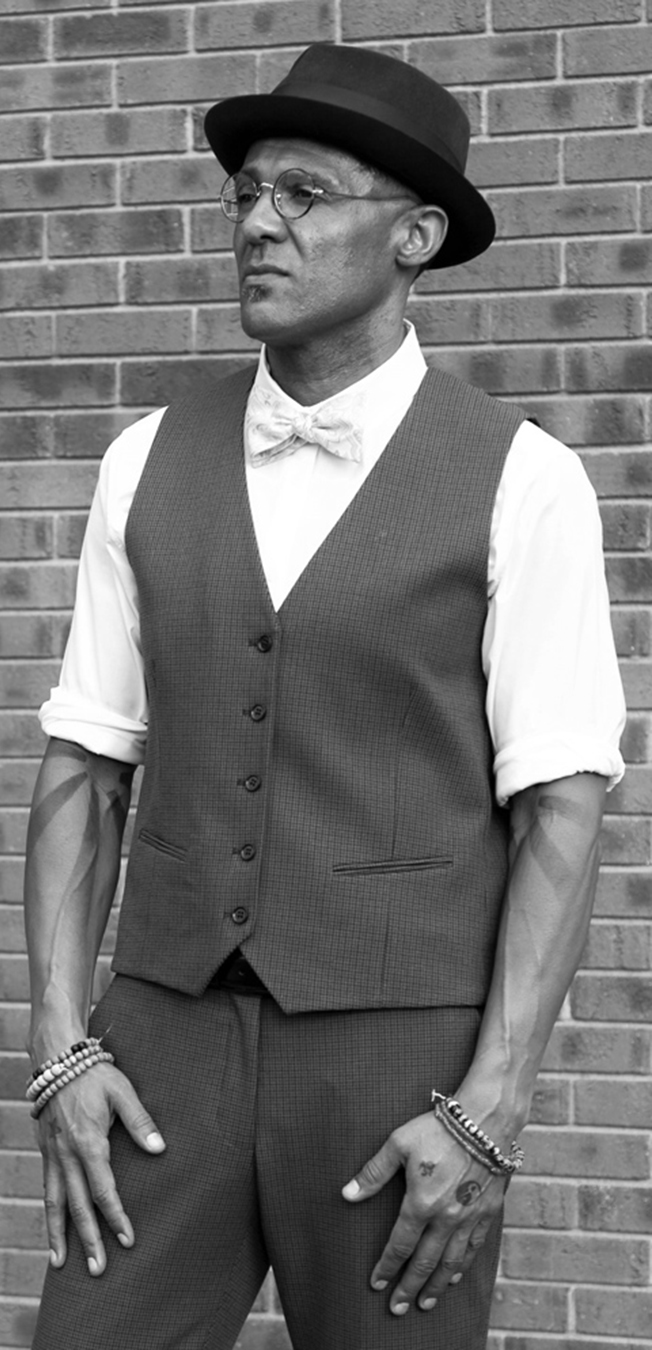
Born and raised in the Southside neighborhood of Roseland in Chicago, he is a former M.P.D. police-detective and highly decorated member of the Department of Justice’s Organized Crime Drug Enforcement Task Force (O.C.D.E.T.F).
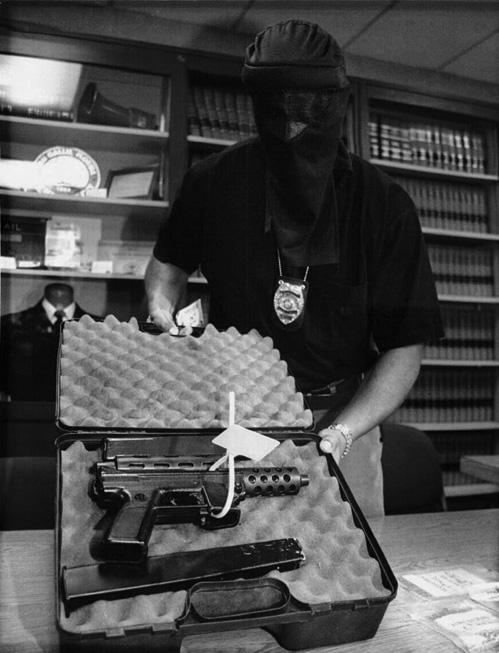
After completing his doctoral studies at NSU, he was awarded a Fulbright Hays Fellowship, an FDD Terrorism Fellowship, and a University of Pittsburgh Diversity Fellowship, where he conducted ethnographic fieldwork across the globe including Kemet (Egypt).
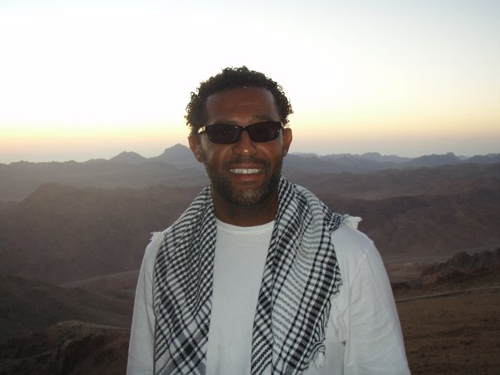
 NEW BOOK!
NEW BOOK!By Austin Choi-Fitzpatrick (Editor), Douglas Irvin-Erickson (Editor), Ernesto Verdeja (Editor); Introduction: Wicked Problems - The Ethics of Action for Peace, Rights, and Justice- Austin Choi-Fitzpatrick, Douglas Irvin-Erickson, and Ernesto Verdeja; I: VIOLENCE 1. The Ritual of Black Armed Resistance: Police Abolition through the Eyes of the Black Radical Tradition, Tony Gaskew; 2. Building a Movement to End Poverty through Nonviolent Resistance Liz Theoharis and Noam Sandweiss-Back; 3. Is Violence the Answer? A Pragmatic Approach Kirssa Cline Ryckman; 4. How Is It to Be Done? Dilemmas of Prefigurative and Harm - Reduction Approaches to Social Movement Work Ashley J. Bohrer; II: LEADERSHIP AND ORGANIZATIONS 5. The Paradox of Survivor Leadership Minh Dang; 6. Allies Out Front: Dilemmas of Leadership Daniel J. Myers; 7. Organizing Dilemmas across U.S.- Based Social Justice Movement Spaces alicia sanchez gill; 8. The Ones Who Walk Away to Stay and Fight Philip Gamaghelyan; 9. From Righteous to Responsive: Rethinking the Role of Moral Values of Peacebuilding Reina C. Neufeldt; III: SYSTEMS AND INSTITUTIONS 10. Dilemmas in Action Where Rule of Law Conflicts with Justice Deena R. Hurwitz; 11. Establishing an Ethics of Post-Sanctions Peacebuilding George A. Lopez and Beatrix Geaghan-Breiner 12. Threading the Needle: Ethical Dilemmas in Preventing Mass Atrocities Ernesto Verdeja;13. Whither the Villains? The Ethical Dilemma in Armed Conflict Laurie Nathan; 14. "A Different Kind of Weapon": Ethical Dilemmas and Nonviolent Civilian Protection Felicity Gray; 15. The Ethics of Transitional Justice Tim Murithi; 16. Why the Peacebuilding Field Needs Clear and Accessible Standards of Research Ethics Elizabeth Hume and Jessica Baumgardner-Zuzik; 17. Consent, Inclusivity, and Local Voices: Ethical Dilemmas of Teaching Peace in Conflict Zones Agnieszka Paczynska and Susan F. Hirsch.
OVERVIEW
The ethics of changemaking and peacebuilding may appear straightforward: advance dignity, promote well-being, minimize suffering. Sounds simple, right? Actually acting ethically when it really matters is rarely straightforward. If someone engaged in change-oriented work sets out to "do good," how should we prioritize and evaluate whose good counts? And, how ought we act once we have decided whose good counts? Practitioners frequently confront dilemmas where dire situations may demand some form of response, but each of the options may have undesirable consequences of one form or another.
Dilemmas are not merely ordinary problems, they are wicked problems: that is to say, they are defined by circumstances that only allow for suboptimal outcomes and are based on profound and sometimes troubling trade-offs. Wicked Problems argues that the field of peacebuilding and conflict transformation needs a stronger and more practical sense of its ethical obligations. For example, it argues against posing false binaries between domestic and international issues and against viewing violence and conflict as equivalents. It holds strategic nonviolence up to critical scrutiny and shows that "do no harm" approaches may in fact do harm.
The contributors include scholars, scholar practitioners in the field, and activists on the streets, and the chapters cover the role of violence in conflict; conflict and violence prevention and resolution; humanitarianism; community organizing and racial justice; social movements; human rights advocacy; transitional justice; political reconciliation; and peace education and pedagogy, among other topics. Drawing on the lived experiences and expertise of activists, educators, and researchers, Wicked Problems equips readers to ask—and answer—difficult questions about social change work.
 NEW BOOK!
NEW BOOK!
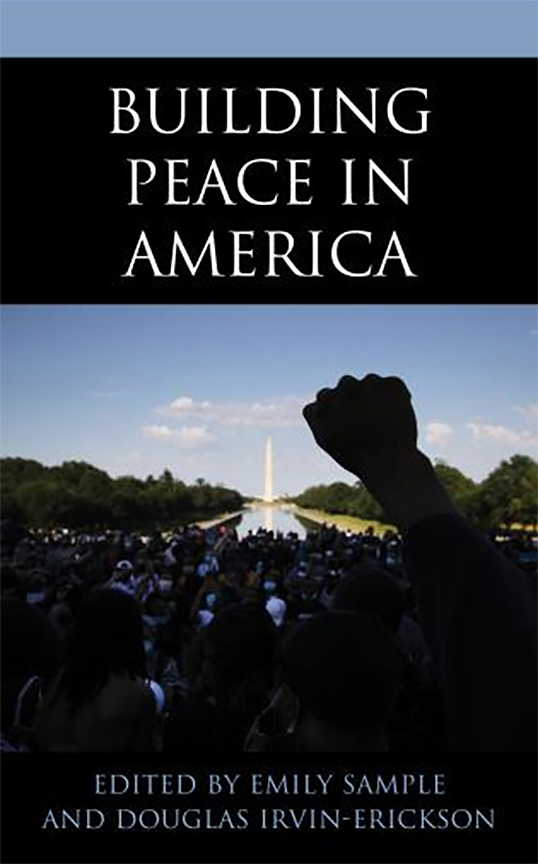
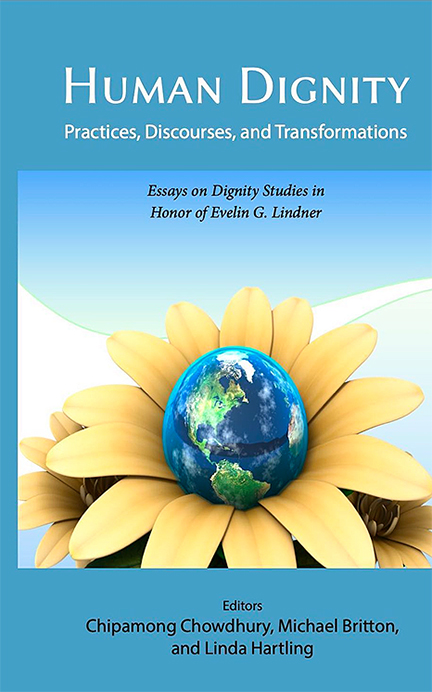
by Professor Tony Gaskew, PhD
This book examines the experiences and social conflicts facing Muslim Americans in the aftermath of the terrorist attacks on September 11, 2001, providing insight on how the highly politicized and tense atmosphere which followed the events of 9/11 impacted the relationship between law enforcement agencies and Muslim American Communities.
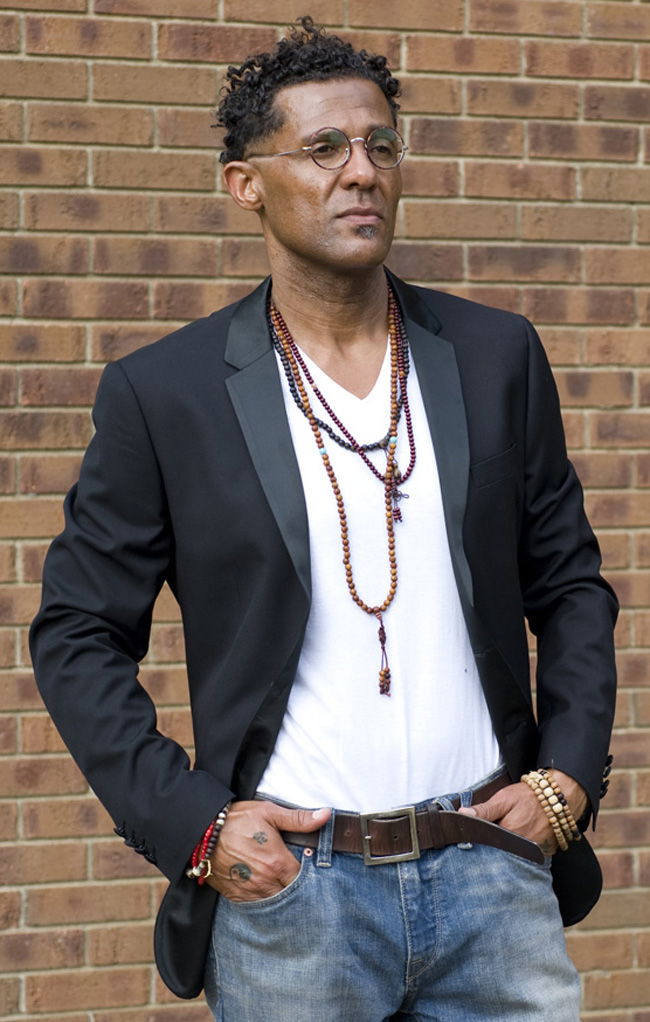
Click link below to view video on YouTube
https://www.youtube.com/watch?v=2JNRO2VNHMY&feature=youtu.be
Tony Gaskew contributes to Pre-Planned Dignilogue 1 (Dignity + Dialogue), on the morning of December 5, 2019, at the 16th Workshop on Transforming Humiliation and Violent Conflict, which took place at Columbia University in New York City, December 5 – 6, 2019. Dr. Tony Gaskew is a Full Professor of Criminal Justice, Director of Criminal Justice, and Founding Director of the Prison Education Program at the University of Pittsburgh, Bradford. (Please be aware that this is an unedited video.) See more on: - www.humiliationstudies.org - www.humiliationstudies.org/whoweare/annualmeeting/34.php - www.worlddignityuniversity.org
Book Launch Speakers Daniel Rothbart, Editor: S-CAR Professor Solon Simmons: S-CAR Professor Tony Gaskew, University of Pittsburgh (Bradford) Karina Korostelina: S-CAR Professor Joseph Montville: S-CAR Professor David Ragland: Pacifica Graduate Institute Arthur Romano: S-CAR Professor
This volume examines a wide range of current social and political systems in the United States that strategically deploy humiliation as a means of controlling certain population groups. In this book launch chapter authors provide in-depth studies of humiliation-power that penetrates one's sense of self by degrading, devaluing and diminishing one's 'soul.' Conflicts over race, ethnicity and power are examined. Humiliation-power is embedded seamlessly in the operations of bureaucrats, routine decisions of a political agency regarding the interactions with marginalized people. Chapter authors also explore the prospects for corrective measures that foster dignifying relations.
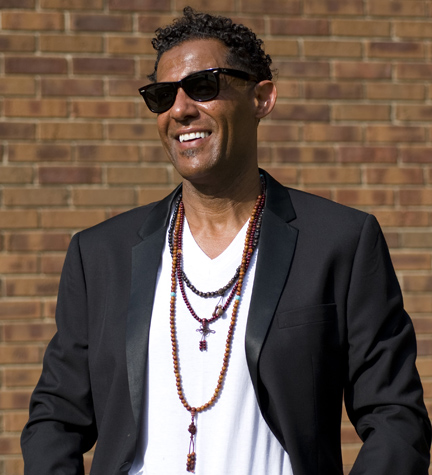
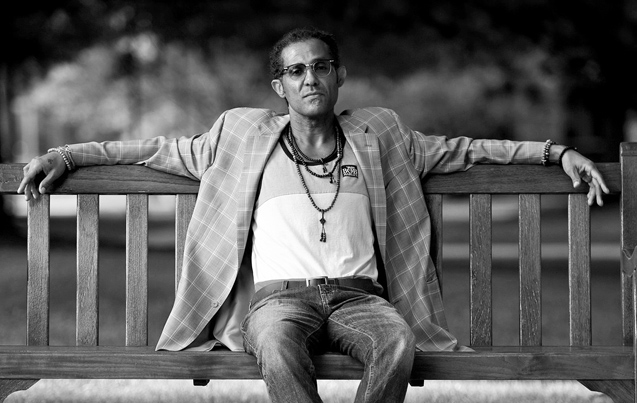
Panelist: Peace as a Tactic of State Sponsored Anti-Black Police Violence: Reflections from the Front Lines of the 1960s Black Power Movement. Peace and Conflict Studies Journal Conference,
Ft. Lauderdale, FL. November 2022.
Panelist: Where Have All The Black Revolutionaries Gone in Steel City?: An Interview with Sala Udin. American Society of Criminology 2022 Annual Meeting,
Atlanta, GA., November 2022.
Panelist: The Ritual of Black Armed Resistance: Police Abolition through the Eyes of the Black Radical Tradition. American Society of Criminology 2022 Annual Meeting,
Atlanta, GA., November 2022.
Panelist: The Invisible Victims of State-Sponsored Sexual Violence: Black Men & the Homoerotic Police Ritual of Stop & Frisk. American Society of Criminology 2022 Annual Meeting,
Atlanta, GA., November 2022.
Panelist: Where Have All The Black Revolutionaries Gone in Steel City? Academy of Criminal Justice Sciences Annual Conference,
Las Vegas, NV. March 2022.
Panel Chair: Activism. Academy of Criminal Justice Sciences Annual Conference,
Las Vegas, NV. March 2022.
Invited Panelist: Where Have All The Black Revolutionaries Gone in Steel City?: An Interview with Sala Udin. Justice Studies Association 2022 Annual Meeting (virtual),
June 2022.
Invited Panelist: Where Have All The Black Revolutionaries Gone in Steel City?: An Interview with Sala Udin. American Sociological Association 2022 Annual Meeting,
Los Angeles, CA., August 2022.
Panelist: Stop Trying to Fix Policing: Lessons Learned From the Front Lines of Black Liberation. Conversations on Race and Policing.
California State University, Bernardino. February 2022.
Invited Panelist: Where Have All The Black Revolutionaries Gone in Steel City?: An Interview with Sala Udin. (virtual) 35th Annual Human DHS Conference,
Columbia University, NYC, December 2021
Panelist: Transformative Teaching: Justice Warriors or CJ Recruiters: The Ethics of Teaching CJ as an Abolitionist. Justice Studies Association.(virtual).
September 2021.
Panelist: Abolishing American Policing: The Ritual of Black Armed Resistance. Justice Studies Association 2021 Annual Conference. (virtual).
MA., June 2021.
Invited Panelist: Anti-Blackness, Anti-Racism, and Pedagogy. (virtual),
University of Pittsburgh, May 2021.
Invited Panelist: How Did We Get Here? Systemic Racism in American Policing. Minnesota State System (virtual),
MN., April 2021.
Panelist: Stop Trying to Fix Policing: Lessons Learned from the Front Lines of Black Liberation. Imagining Abolition: Beyond Prisons, Wars, and Borders
(virtual), PA., April 2021.
Invited Panelist: Racialized Systems of Humiliation. Carter School Peace Week (virtual). George Mason University.
VA. March 2021.
Moderator: The Nickel Boys. First Year Seminar Panel (virtual). University of Pittsburgh,
Bradford. PA., February 2021.
Invited Panelist: 2021 Assessment and Teaching Conference. Inclusive Assessment (virtual), University of Pittsburgh,
February 2021.
Tuesday, February 23rd 2021 | 12:30-2:00pm Tony Gaskew, PhD is a Panelist
Join Carlow University’s Social Justice Institutes and the Atkins Center for Ethics for a panel demystifying recent calls for police reform, defunding, and abolition.
Virtual, Free, & Open to the Public.
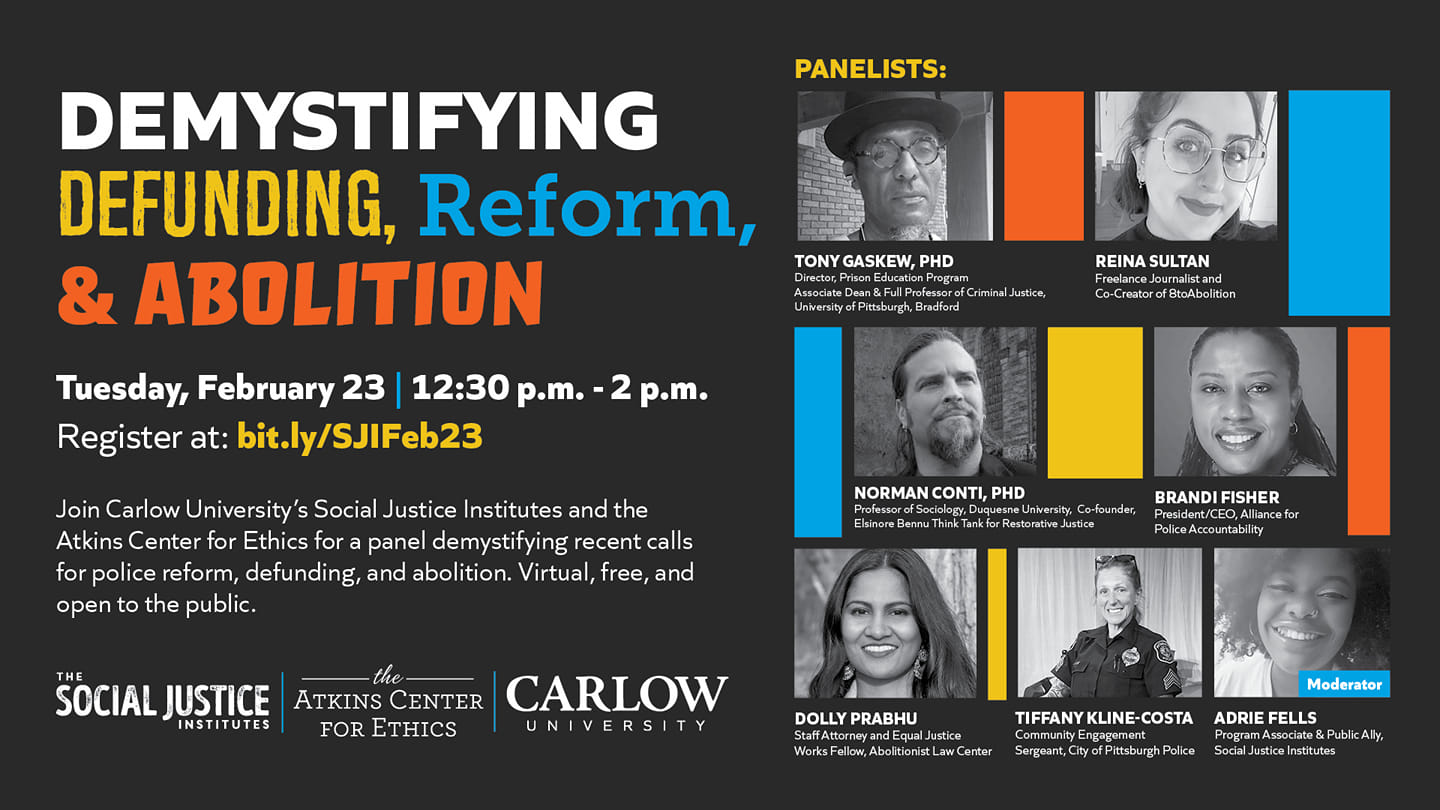
“Stop Trying to Fix Policing: Lessons Learned from the Front Lines of Black Liberation.” (virtual)
34th Annual Human DHS Conference, Columbia University, NYC, December 2020
.jpg)
“Stop Trying to Fix Policing: Lessons Learned from the Front Lines of Black Liberation.” (virtual)
Social Justice Roundtable, Nova Southern University, October 2020
.jpg)
“Philosophy in Playwork.” National Playwork Conference, 8 Weeks of Conference, (virtual)
London, United Kingdom, September 2020
“COINTELPRO-Pittsburgh.” PITT 0210-Anti-Black Racism: History, Ideology, and Resistance, (virtual)
University of Pittsburgh, Pittsburgh, PA., September 2020
“The Ritual of Black Armed Resistance: Police Abolition Through the Eyes of the Black Radical Tradition.” (virtual)
Kroc School of Peace Studies, University of San Diego, San Diego, CA., September 2020
University of Pittsburgh, Pittsburgh, August 2020
December 5-6, 2019
"Life Support: Ritual, Community, and Healing Through the Eyes of a Juvenile Lifer.”
34th Annual Human DHS Conference, Columbia University, NYC
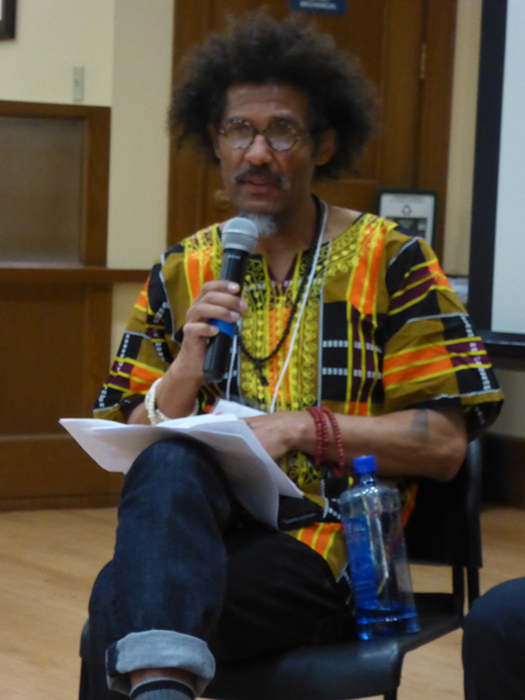
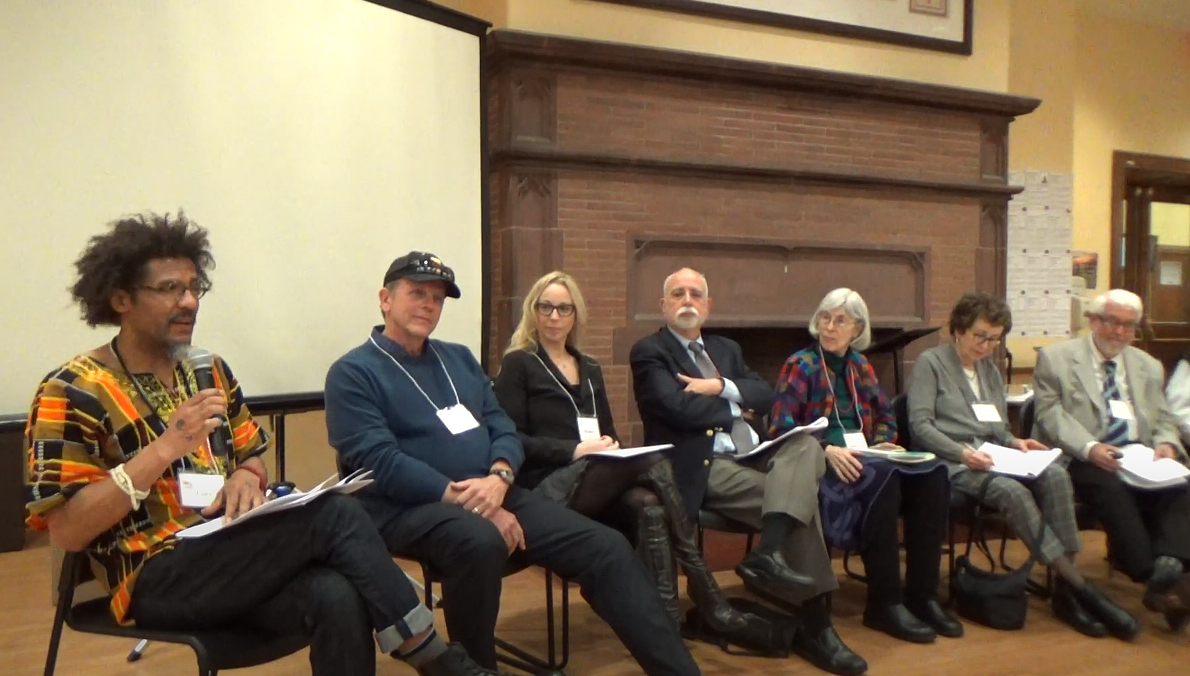
October 25, 2019; Friday, at 7:30 PM – 9:30 PM
Ballroom of the Kent State University Hotel and Conference Center. 215 S Depeyster St, Kent, Ohio 44240
When Government Kills: State Violence and Youth Movements
Dr. Tony Gaskew, professor of criminal justice, will take part in a panel discussion in commemoration of the 50th anniversary of the Kent State shootings. The discussion, “When Government Kills: State Violence and Youth Movements” is part of an international conference at Kent State University in Kent, Ohio, Oct. 24 through Oct. 26. Kent State's School of Peace and Conflict Studies is sponsoring the conference as part of Activities surrounding the 50th anniversary of the May 4, 1970, shooting by the Ohio National Guard of Kent State students during a demonstration against the U.S. wars in Vietnam and Cambodia, and the occupation of the Kent State campus by the Ohio National Guard. “The horrific shootings that took place during the student-led protests at Kent State University in 1970, are a sober reminder that the threat of state violence has always existed in one form or another on college campuses,” Gaskew said. “As Kwame Ture once noted, students on a college campus play a vital role in society, serving as the gatekeepers of revolutionary change. The state has always feared this reality. This is true today, just as it was 60 years ago.” The other experts in the discussion include Christine Nobliss, a Plains Cree-Salteaux from the George Gordon First Nation in Canada who is active with Standing Rock youth activists; Dr. Thomas Grace, a nationally recognized historian and one of the Kent State University students shot by the Ohio National Guard; and Sibley Hawkins, program officer at the International Center for Transitional Justice at Kent State University. Gaskew is director of the criminal justice program at Pitt-Bradford and has more than 20 years of policing experience. He is a Fulbright Hays Fellow and is the founding director of the Prison Education Program, where he has created post-secondary education initiatives in prisons since 2007. Gaskew garnered national recognition when he was selected by the White House and the Obama administration to serve on a criminal justice roundtable. Over the past several years, he has spearheaded numerous grant-funded research projects that have examined the impact of systemic racism within the policing culture and the broader criminal justice system, and new pedagogical platforms in post-secondary prison education programming. He is the author of two books, “Policing Muslim American Communities” and “Rethinking Prison Reentry: Transforming Humiliation into Humility.” His upcoming third book project, “Stop Trying to Fix Policing: Lessons Learned from the Front Lines,” is a critical examination of community-controlled alternatives to policing in America.
|
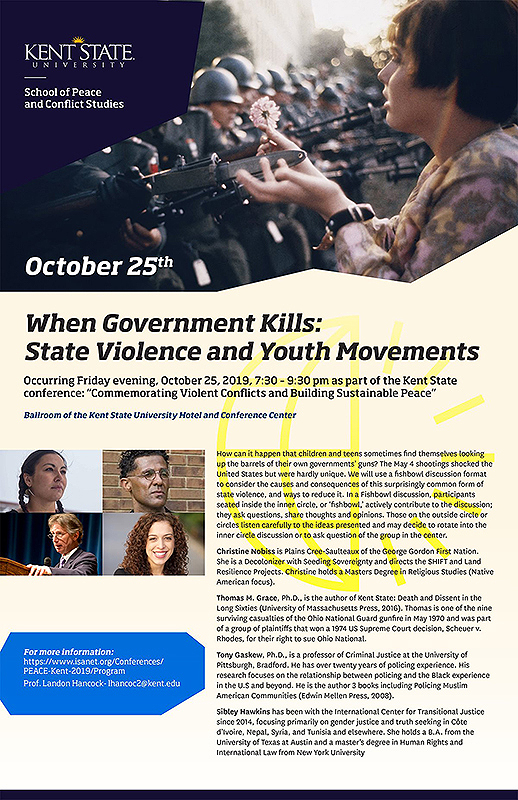
December 6 – 7, 2018
2018 Workshop on Transforming Humiliation and Violent Conflict: "What Is the Language of Dignity?"
Tony Gaskew, PhD: Learning to Speak the Language of Police Abolition
Professor of Criminal Justice, University of Pittsburgh, Bradford
Abstract:
The state-sponsored social experiment known as policing has come to a clear and distinct crossroads in America. With its origins in the underbelly of enslavement, policing has left a horrific legacy of direct and systemic violence against the Pan-African diaspora in America. As scholars, practitioners, and community activists, we must begin to embrace our own collective role in creating what Kwame Ture described as a resistance consciousness. In this Dignilogue, I seek to inspire a new, revolutionary, and liberatory conversation on police abolition and national decolonization efforts in America.
Venue: Columbia University, Teachers College (TC), NYC in cooperation with the World Dignity University initiative
August 10-12, 2018
The Society for the Study of Social Problems Annual Meeting
Philadelphia, PA
April 6-7, 2018
North Central Sociological Association Annual Meeting
Pittsburgh, PA
March 9-10, 2018
George Mason University
Lorton, VA
December 7-8, 2017
Human DHS Conference
Columbia University
NYC, NY
November 15-18, 2017
American Society of Criminology
Philadelphia, PA
September 27, 2017
CUNY-La Guardia Community College
La Guardia, NY
November 18, 2016
American Society of Criminology
New Orleans, LA
November 3, 2016
National Conference on Prison Higher Education
Nashville, TN
June 10, 2016
Roundtable Discussion: Fair Chance Education Pledge
The White House Washington, DC
May 5, 2016
Roundtable Discussion: Criminal Justice Reform
The White House Washington, DC
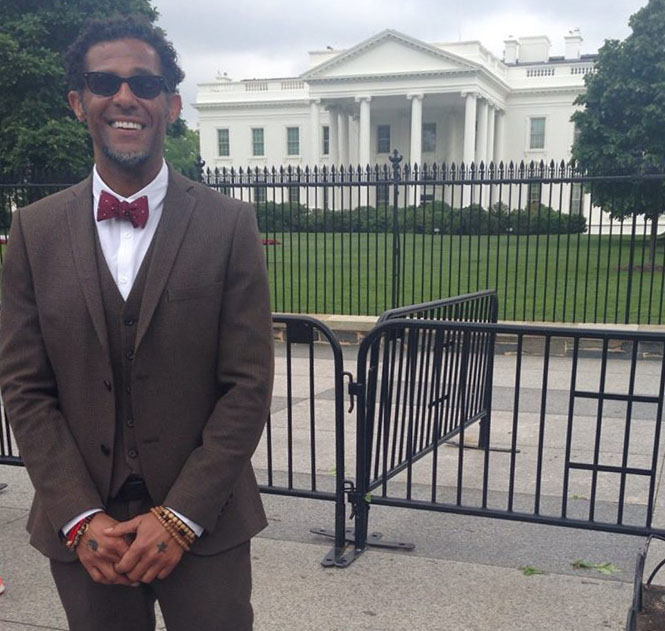
Tony Gaskew, Ph.D. at the White House
![]()
Tony Gaskew, Ph.D, graduate of the doctoral program in Conflict Analysis and Resolution in the Department of Conflict Resolution Studies (DCRS) in NSU’s College of Arts, Humanities, and Social Sciences (CAHSS), was invited to the White House to participate in a roundtable on Criminal Justice Reform.
Gaskew was one of 10 U.S. educators invited to participate in the roundtable, which was held May 5, 2016 An expert on prison education reform, Gaskew is also a graduate of the master’s in Criminal Justice in CAHSS’ Department of Justice and Human Services.
Gaskew’s latest book titled, Rethinking Prison Reentry: Transforming Humiliation into Humility, focuses on the role of the criminal justice system in providing adequate post-secondary prison education opportunities for incarcerated black males and the impact of historical racism on black males and on the criminal justice system.
Gaskew was a recipient of the 2014 NSU Distinguished Alumni Award. He is an associate professor of criminal justice at the University of Pittsburgh-Bradford where he also serves as director for the Criminal Justice Program. In 2007 Gaskew began teaching victim-impact classes at the Federal Correctional Institution McKean. Subsequently he began teaching university classes at the prison with both incarcerated students and University of Pittsburgh students. He is the founding director of the Prison Education Program at the university, working with the Federal Bureau of Prisons on post-secondary educational opportunities for incarcerated students at the Federal Correctional Institution McKean.
Gaskew’s honors include the Fulbright-Hays Fellow for a research project in Egypt, the Academic Fellow in Terrorist Studies for a research project in Israel by The Foundation for Defense of Democracies, University of Pittsburgh Faculty Diversity Fellow, Teacher of the Year by The National Society of Leadership and Success, FCI McKlean Volunteer of the Year by the Federal Bureau of Prisons, Florida Narcotic Officer of the Year, and Melbourne Police Department Detective of the Year.
Posted: May 9, 2016 Categories: NSU Alumni Spotlight, SharkBytes, SharkBytes Archive
December 20, 2015: 6:00am-8:am
Dr. Gaskew on WHCR 90.3 FM, "Man 2 Man Show"
December 3-4, 2015:
Columbia University, Human DHS, lecture
NYC, NY
November 21, 2015
American Society of Criminology
Washington, D.C.
November 19, 2015
Global Solutions Pittsburgh
Pittsburgh, PA
November 6, 2015
National Conference on Prison Higher Education
Pittsburgh, PA
October 17, 2015
Peace and Justice Studies Association
James Madison University
Harrisonburg, Virginia
May 28th-30th, 2015:
Paper Presentation & Panel | Justice Studies Association (JSA) Annual Conference
Bridgewater State University, Bridgewater, Massachusetts
Academy of Criminal Justice Science, Orlando, FL
February 8th, 2015:
Discussion Panel, “Race Issues in America: Part 11, the Ferguson Police Shooting and Beyond”
NSU, Fort Lauderdale, FL
September 26th-29th 2014:
Book Signing and lecture, NSU, Fort Lauderdale, FL
Academy of Criminal Justice Science, Orlando, FL
October 8th 2014:
Book Signing, University of Pittsburgh Bookstore, Pittsburgh, PA @ Noon
Academy of Criminal Justice Science, Orlando, FL
October 9th-11th 2014:
Association of Applied & Clinical Sociology, Pittsburgh, PA
Academy of Criminal Justice Science, Orlando, FL
October 10th 2014:
Discussion Panel "Think Tanks as Mechanisms of Social Justice" Duquesne University, Pittsburgh, PA @ 5:00 PM
Academy of Criminal Justice Science, Orlando, FL
October 24th 2014: 8:00pm-9:00pm

Dr. Gaskew on WXIA TV's NightTalk: Get to the Point
November 21st, 2014: 8:00pm-9:00pm

Dr. Gaskew on WXIA TV's NightTalk: Get to the Point
November 28th, 2014
Dr. Gaskew appeared LIVE
on KDKA-TV CBS Pittsburgh

Commentary on the Ferguson Grand Jury decision
December 4th-5th 2014:
Columbia University, HumanDHS lecture,
NYC, NY